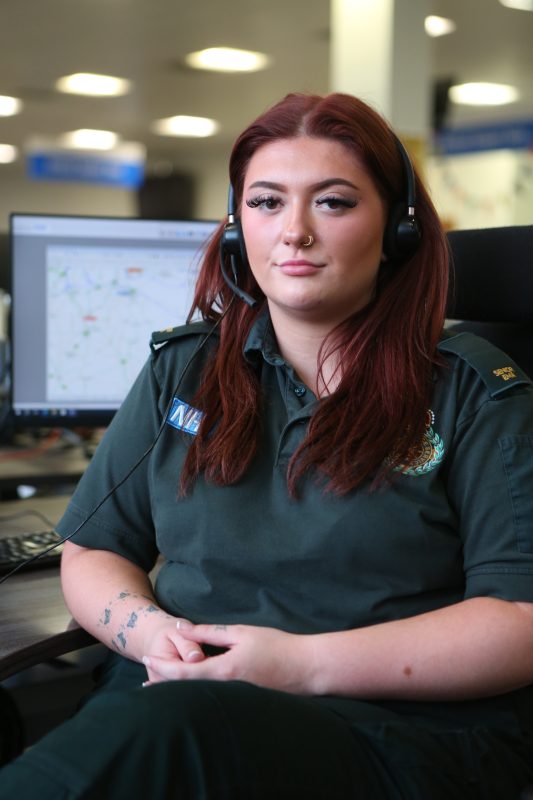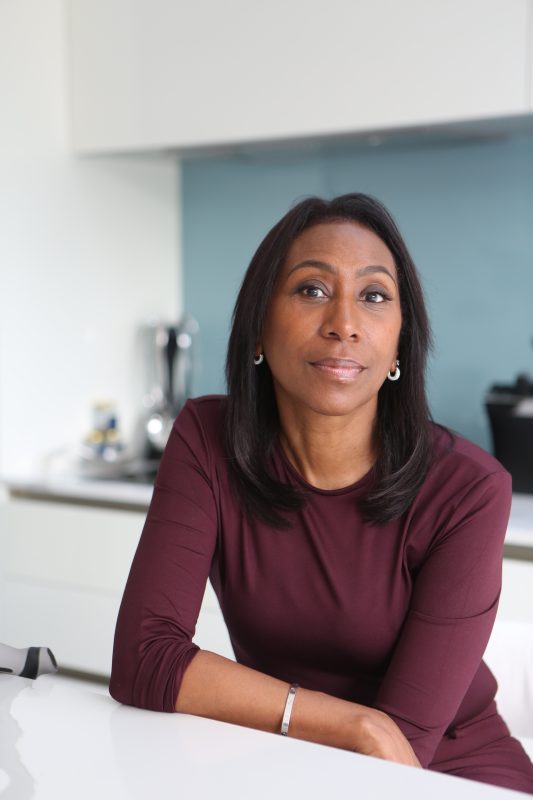 A Senior Emergency Medical Advisor for SECAmb is supporting a national stroke campaign urging people to act FAST even if they don’t show all the signs.
A Senior Emergency Medical Advisor for SECAmb is supporting a national stroke campaign urging people to act FAST even if they don’t show all the signs.
In July, Mollie Blackman, based at our control centre in Medway, took a call from a 58-year-old Dionne Hudson from Surrey after her arm went numb one evening and she couldn’t grip her phone.
While she couldn’t raise her arm, Dionne’s face and speech were unaffected, so she assumed that it couldn’t be a stroke and went to sleep. When she woke, her symptoms had worsened and her leg also felt weak, so Dionne called 999.
 Within 25 minutes of making the call, she was in hospital having a CT scan. Dionne had experienced an ischaemic stroke and was partially paralysed on the left side of her body.
Within 25 minutes of making the call, she was in hospital having a CT scan. Dionne had experienced an ischaemic stroke and was partially paralysed on the left side of her body.
Doctors told her that it was a miracle she had survived the stroke but warned her that recovery could take up to a year.
Dionne, who shared her experience has part of the national campaign, said: “The doctors were amazed that I had survived my stroke, as it had actually occurred the night before I called 999.
“Looking back, I was very lucky as the weakness in my arm was a clear sign of a stroke, but because I didn’t have a dramatic symptom affecting my face or speech, I didn’t consider that I should get help sooner. I’m so grateful for the quick response from the ambulance and hospital staff, as their care has meant I’m now at home with my husband and daughter and working hard on the road to recovery.”
Following treatment, Dionne returned home after eight days in hospital, where she now continues her rehabilitation.
In the last year, the Trust responded to 13,635 suspected stroke calls, that’s a suspected stroke call every 40 mins.
Mollie said: “I handle 999 calls about suspected strokes regularly. Making that call as soon as you notice any sign of a stroke is so important because the sooner a patient receives life-saving treatment, the greater their chances of recovery.
“If you experience any symptom of a stroke, even if it seems subtle and if you’re unsure, we’re here to support you and make sure you get the help you need.”
You can watch the film featuring Mollie and Dionne on NHS England’s YouTube Channel.
The first signs of a stroke include:
- Face weakness – it might be hard to smile, and one side of your face may droop (fall)
- Arm weakness – you may not be able to fully lift both arms and keep them there because of weakness or numbness in one arm
- Speech problems – you may slur your words or sound confused
Other symptoms that could be the first sign you or someone else is having a stroke include:
- Sudden weakness or numbness on one side of your body (including in your leg)
- Sudden loss of vision or blurred vision in one or both eyes
- Sudden difficulty speaking or thinking of words
- Sudden memory loss or confusion
- Sudden severe headache
- Sudden dizziness, unsteadiness or a sudden fall, especially with any of the other signs
Visit www.nhs.uk/ActFAST for more information.
